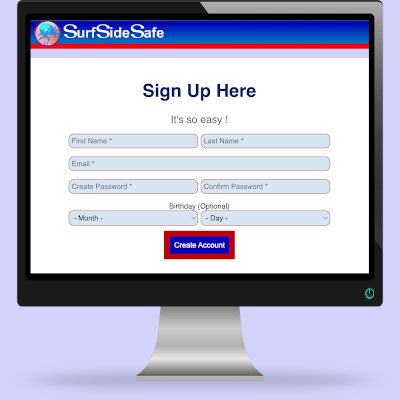What and What Not to Say to the Policeman Who Pulls You Over While You Are Driving |
 Self Help
Self Help
If a policeman pulls you over, there are some important things you must remember.
First, the officer is NOT your enemy. He has a job to do. Don't take it personal.
Second, the officer is going to be as nice to you as you are to him. If you are polite, he will also be polite. If you have an attitude, so will he.
Third, he is doing this to help you, not hurt you. A reasonable person who gets a ticket for a traffic violation usually learns a lesson from it, and is not likely to repeat the offense.
Fourth, he is the one with the badge and the authority. Respect both!
Finally, the police officer is a human being. Treat him like one. His life matters just as much as yours.
When a policeman pulls you over, it is crucial to remain calm and follow their instructions. Trying to argue or challenge the officer may escalate the situation and result in unnecessary complications. Keep your hands on the steering wheel, turn off the engine, and await instructions from the officer.
It is essential to avoid admitting guilt when interacting with a policeman during a traffic stop.
Never say things like, "I know I was speeding," or "I shouldn't have run that red light."
Admitting guilt can be used against you later and may complicate your defense in case of a legal proceeding. Instead, stay polite and respectful, and avoid self-incriminating statements.
Maintaining a polite and respectful demeanor will contribute to a positive interaction with the officer.
Use phrases such as "Yes, officer" and "No, officer" to indicate your cooperation.
Avoid addressing the officer in a confrontational manner or using disrespectful language, as it may lead to further problems.
When requested by the officer, provide them with the necessary documentation, including your driver's license, vehicle registration, and proof of insurance. Ensure that your documents are readily accessible and up-to-date. Avoid making sudden movements or reaching for items in the vehicle without informing the officer, as it may raise concerns.
It's important to remember that you have the right to remain silent during a traffic stop. If you are asked incriminating or uncomfortable questions, you can respectfully exercise your right to remain silent.
You can reply with a phrase such as, "I choose to exercise my right to remain silent," and decline to answer any further questions.
However, it is important to consult with a legal professional regarding your specific rights in your jurisdiction.
Engaging in arguments or confrontations with the officer is not advisable during a traffic stop. Resist the urge to argue or challenge the officer's authority, even if you believe you are in the right. It is crucial to remember that the side of the road is not the appropriate place to debate traffic violations or police conduct. Address any concerns through the appropriate legal channels after the encounter.
When asked about potential traffic violations, it is important to be concise and accurate in your responses. Avoid offering lengthy explanations or justifications for your actions, as it may complicate the situation or provide additional evidence against you. Answer with brief and direct responses, providing only the necessary information.
If you receive a ticket or believe that your rights were violated during the traffic stop, it is advisable to seek legal advice. Consulting with an attorney who specializes in traffic law can help you understand your options and ensure that your rights are protected. A legal professional can guide you through any potential legal proceedings and help you build a strong defense if necessary.

Interactions with law enforcement during a traffic stop can be intimidating, but knowing what to say and what not to say can significantly impact the outcome. Remember to remain calm and follow the officer's instructions. Avoid admitting guilt, stay polite and respectful, and provide the necessary documentation when requested. Exercise your right to remain silent when appropriate, and avoid arguing or confronting the officer on the roadside. Consult with a legal professional if you have concerns or need guidance. By following these guidelines, you can navigate a traffic stop with confidence and ensure a positive outcome.
Thank you for visiting us. Please visit us again. You are always welcome.
AND:
Remember! At SurfSideSafe, we are here to make your life much better.
Join SurfSideSafeCreating an account with SurfSideSafe is very easy.In a few minutes, you will have the best Social Media experience you have ever had in your life.  |

Upload☻Create☻Connect
All in one place
And we actually listen
👉 See why people are making the switch

Creating an account with SurfSideSafe is very easy.
In a few minutes, you will have the best Social Media experience you have ever had in your life.
